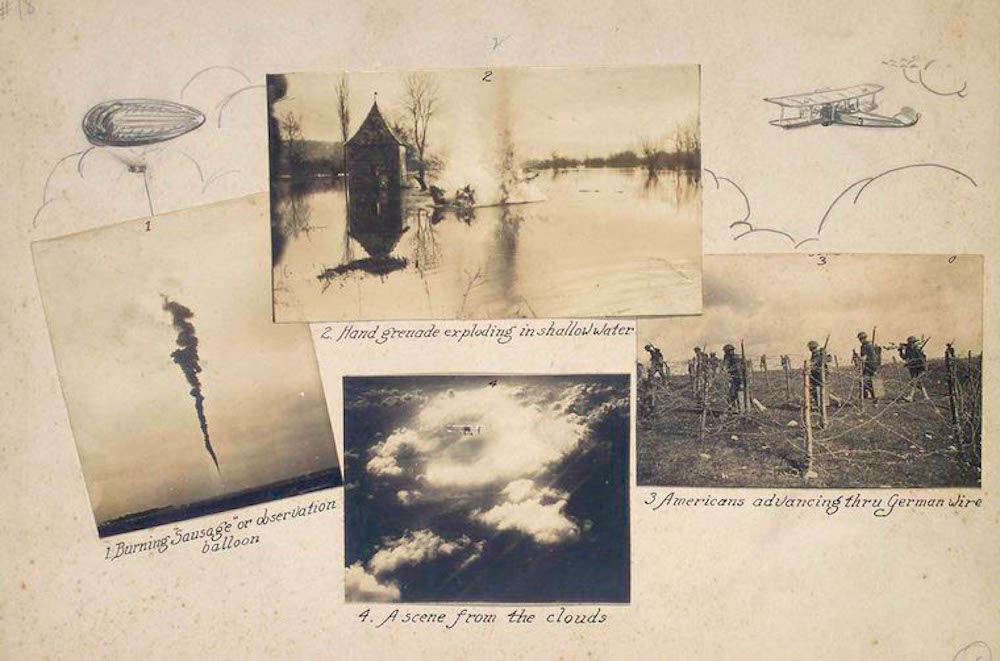
I’m supposed to be sliding
my numb toes into boots,
zipping them up my calves
to bring the mail out. Three
lemons rot in a gray bowl.
I used to write letters to both
sets of grandparents, my pilot
grandfather responding sometimes.
During my tomboy phase,
he would try to teach me tennis
in a park in Vermont—a hornet
pausing around me while I swung,
the brim of my Bulls cap
shadowing my eyes. The apostrophe
of a stinger would always find my brother,
his ankles—how he would run away
from the empty swings, crying.
My grandfather told him once: to escape,
fly so high, the enemy can’t read you,
the clouds wound in balls
of cotton candy, the drop
tickle in the stomach, the lift—
he hardly spoke to us
the rest of the afternoon.
So my brother and I threw hot dog buns
at geese, their toes dragging
fans through the water that became pins
of light & the rest of the story is like satin
stitches that cover a background in lines.
Tucked into black paper tabs,
a photo of an atomic cloud
marks the page of an album.
I guess it’s OK now, he said, meaning
giving it away. It will not make you
close your eyes. It does not match
the famous image—fireball
ballooning up, top split from the stem.
Our photo shows an intact, darker
column a breath—blink,
swallow—sooner. Tick, tick, tick.
Whose? Another official shot.
I imagine a page of language
that appears to be woven
from platinum—each verb glinting.
The surface itself would be an excerpt
knifed from the hem of a priest’s robe.
A priest’s body is on loan
in one museum, the placard explaining
how under the lid of the sarcophagus
a scribe copied the glyphs of a prayer
too old for him to understand:
vertical bars patterned with eyes,
another line like a fret glued
to a guitar. Did the garble
protect this body from history?
Is that what language does?
I kneeled at the bottom of its glass
case & stared. Here are the chapped feet.



